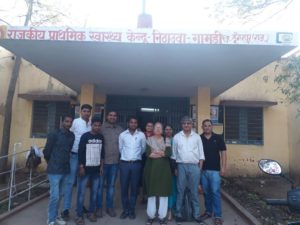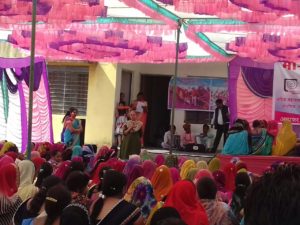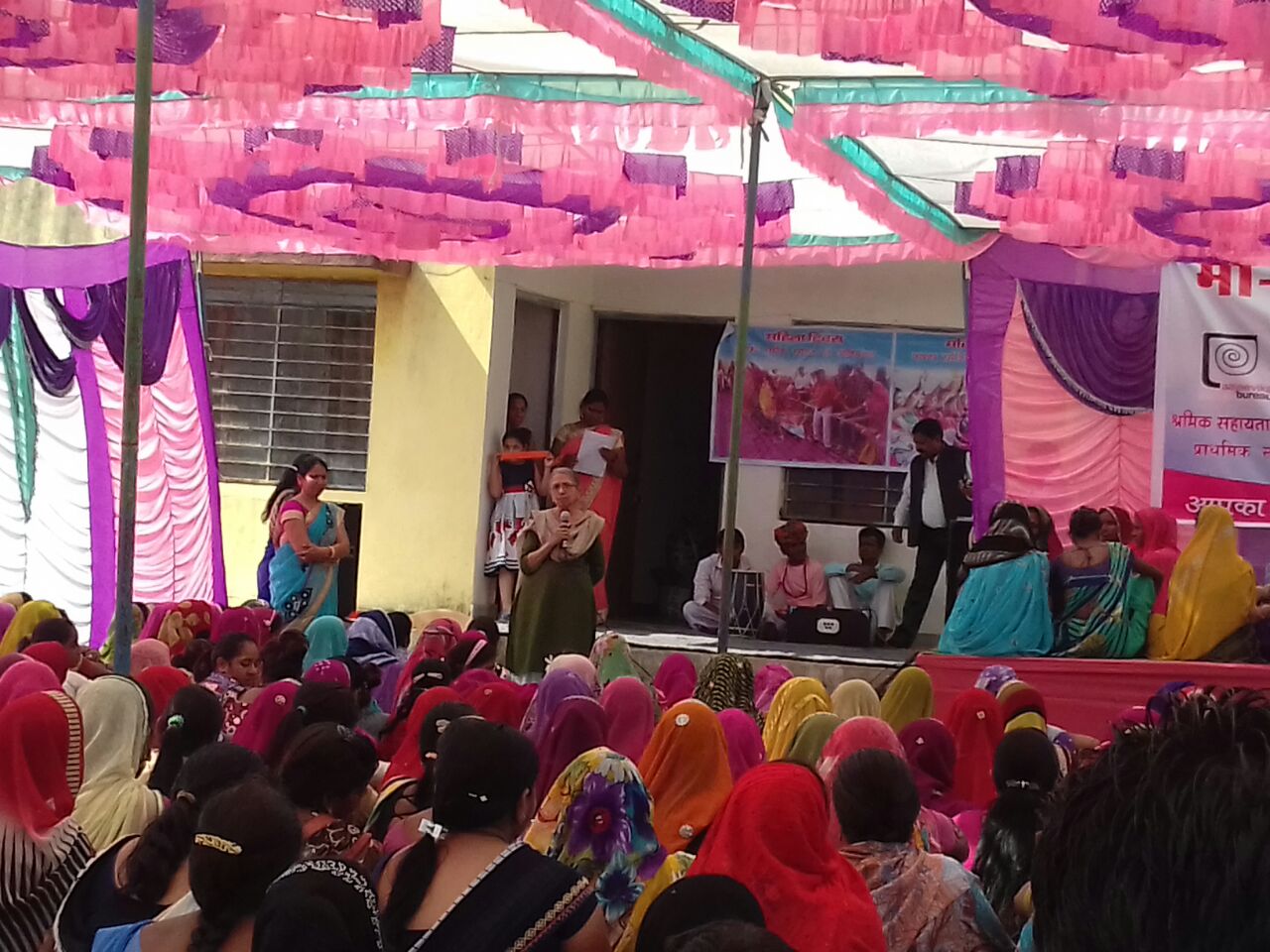An inspiration reaffirming the spirit of Women’s Day – Dr Vinaya Pendse
8th of March’18 was unusually beautiful. During the morning ride to the field, the office car halted in front a sober-looking house from which a neatly dressed up lady in her 80s, walked out and stepped inside. A few minutes later, she is introduced as Dr Vinaya Pendse, a distinguished medical practitioner and a pioneer in maternal and child health. Before one gets an opportunity to listen to her commendable work and achievements, she cuts short the conversation saying, “I am the youngest amongst you.” The car starts off and the next 8 hours of the day with Dr Pendse remains etched in my memory.
Dr Pendse is a well-known name in the field of healthcare. During the decades of 70s and 80s, Dr. Pendse had set a very high standard of quality care in the maternity ward and obstetric Deptt of a District hospital in Rajasthan. My Director, her mentee shared that back then, it was the best Deptt. that defined true quality care of patients and overall well coordinated and managed. To me, this was a surprise but at the same time a sad thought surmising the present condition of the same hospital. How was it possible? Dr Pendse responded to this saying, “it is extremely essential that you and even your team in the field FEEL and echo the same vision, the values and principles rooted in your organisation. As long as you donot internalise, you cannot give your best and cannot feel the happiness in giving your best. It is important to feel for the cause.”
While medical science is in its ambitious zeal to digitally transform healthcare today, this incredible lady shared thoughts grounded to reality. She talked about the need to preserve the human values attached to healthcare and the need for having a human face in this profession. She also shared about the very feel of a human touch while dealing a patient and the sanctity of the profession. “If yo u choose a medical profession, be prepared to commit to it, and preserve its very essence of serving the most needy and of saving vital lives. It is not a profession of glamour and money”, advised Dr Pendse.
u choose a medical profession, be prepared to commit to it, and preserve its very essence of serving the most needy and of saving vital lives. It is not a profession of glamour and money”, advised Dr Pendse.
Later in the day, I snatched a moment to discuss with her a thought -provoking issue. I shared with her how in the rural communities we work, women are not aware about the existence of vagina and how ‘pleasure’, ‘desire’ are wielded by men. We discussed how the secrecy and social norms clouding the vagina, often keep its discussion under the wrap. Also how in the process, the health of the vagina remains ignored, which in the long run could be detrimental. “…and because it is tabooed, an adolescent would rather rely on a confidante like a peer (who might be equally ignorant) for sharing health concerns related to her lower body part.”, shares Dr Pendse.
I then delved further to know her opinion on female masturbation -an oft-tabooed thought denying women the very right to seek pleasure in her own body. Very distinctly Dr Pendse explains, “masturbation is something so subjective and so is pleasure. It is not just knowing one’s body, but also more importantly knowing its limitations and not exploiting it out of sheer temptation. This applies to every part of the body be it the taste buds, the brain, lungs or the clitoris.”
As the discussion meandered through interesting insights, I asked her about her thoughts on health education in this entire context. She shared that health education for behaviour change is something quintessential, the very basis that every section of the society requires. “How many educated folks know about how to take care of eyes? The long gaze at phones and laptops are harming your very eyes! But do we care?” I asked her if health education should begin with understanding human body. Dr Pendse very lucidly explains how knowing and being perceptive about the audience is essential . “Which age group do you want to explain reproductive health? What has been there education level? A woman who has never been to school will not understand if you talk of uterus, cervix , ovaries. How then do you explain and to what extent should she know. This is what you must think and devise”.
Quality care in health requires a consistent, dedicated, team effort. It also requires perspectives, a pair of critical eyes to offer direction on working on real change in the community. Dr Pendse’s years of contribution to setting standards of quality in healthcare and her take on the many issues we discussed, were ineffably admirable. Such wisdom gives us the strength to persevere in a domain that demands time, attention , energy and round the clock dedication.
 To me, Dr Pendse remains an inspiration. An 80 year old with all her zeal , travelling with us in field , interacting and understanding the work of every professional and not an iota of tiredness. As she addressed a gathering of 100 women on the occasion of Women’s Day, I was in awe. To think that a female doctor, back in the era when girls were barely sent for higher education, could transform a crucial department of medical field – maternity and newborn care. To think that her landmark study on maternal deaths* gave new insights to the way the Government to focused on the problem. It was an amazing rendezvous listening to her anecdotes with glimpses of the zeal with which she had worked, back then. Equally amazing was the fact that even at this age, she still continues to understand, motivate and guide many of us!
To me, Dr Pendse remains an inspiration. An 80 year old with all her zeal , travelling with us in field , interacting and understanding the work of every professional and not an iota of tiredness. As she addressed a gathering of 100 women on the occasion of Women’s Day, I was in awe. To think that a female doctor, back in the era when girls were barely sent for higher education, could transform a crucial department of medical field – maternity and newborn care. To think that her landmark study on maternal deaths* gave new insights to the way the Government to focused on the problem. It was an amazing rendezvous listening to her anecdotes with glimpses of the zeal with which she had worked, back then. Equally amazing was the fact that even at this age, she still continues to understand, motivate and guide many of us!
* Pendse, Vinaya. “Maternal Deaths in an Indian Hospital: A Decade of (No) Change?” Reproductive Health Matters – Special Issue on Safe Motherhood Initiatives (1999): 119-127
Manisha Dutta

